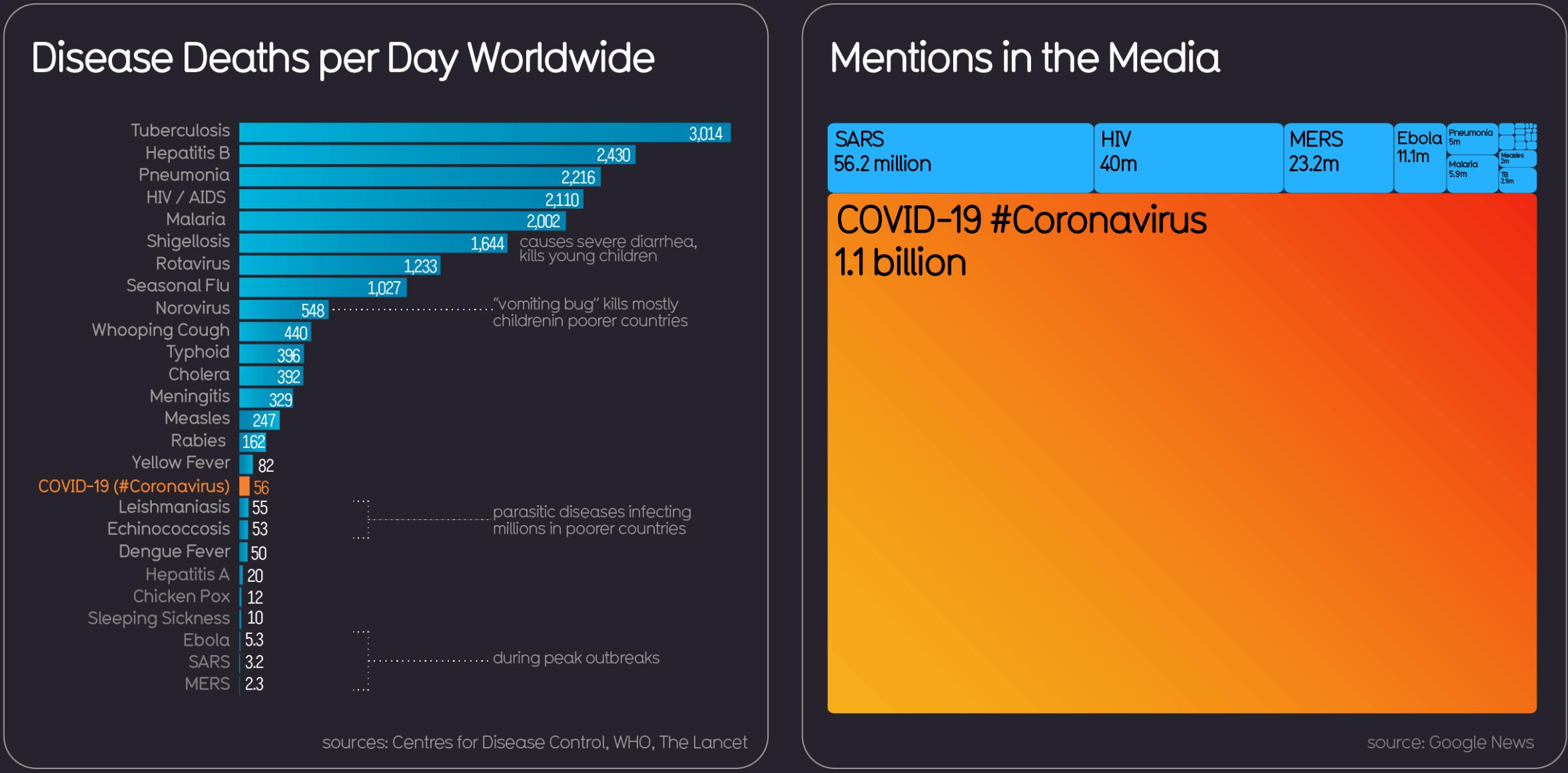I’ve seen the argument about not swamping the health services, and I still don’t think it adds up. Let’s not swamp them this week, let’s swamp them next month instead! Yay? To make a shutdown work to maximise healthcare resources, it would need a level of coordination I’m not seeing
However, the trouble judging the response is that there is very little precedence in recent times to look back upon. It could be that the response is the best that it could be. For example, it would be easy to say that if airport security or military response units simply “did their job” then 9-11 would never have happened. However, that’s only because 9-11 happened that we can look back and say that “mistakes” were made. Same for hurricanes, earthquakes and mass shootings.
The response here in California was pretty strong, but only after cases were already spreading. In places where Covid19 and Coronavirus cases haven’t arrived, like Alabama at present, for example, it is probably likely that they should be instituting even stricter policies than places where the virus is already widespread. We’re catching up to a collection of mass events or infections that probably happened two weeks to a month ago, so the actions we take now are still likely to look like “mistakes” based on information we’ll have in two weeks to a month from tomorrow.
Governments will get blamed for inaction, but at the same time, it really isn’t under government control. The virus is being spread by people and the medical community has learned a lot about it. Alongside the question of whether or not the government responded well or poorly to the outbreak, each person, community and business also has to ask if they personally acted responsibly based on the information known at the time their personal decisions were made. Everyone has known for a while what its symptoms are, how it is spread and how to prevent infection.
I’ve seen a lot of coordination in communities, from companies and businesses that show they take it seriously. California is known for scary earthquakes, wildfires, flash floods and landslides, but honestly, these are random unpredictable emergencies for the most part. We know they are going to happen eventually, but not every year or even in twenty years. Tornados, Hurricanes, snow and ice storms are yearly occurrences for the Eastern US and it is likely that more people die each year in the US from icy roads than have ever died in an earthquake. But when one happens, people will likely say “well, they knew one was going to happen eventually. Why weren’t they ready?”
Usually, the answer is that we thought we were ready.
However, medical science does seem much more prepared to deal with this today than previous epidemics. It took 30 years to completely deal with polio. Flu, TB and HIV/AIDS are all still very active and medicine is still improving its effectiveness against them as well. Covid19 will continue to spread and kill a number of people, and it may turn out that what doctors, communities and governments learn from this pandemic will actually save far more lives in much worse epidemics that are going to happen but can’t be predicted. To make us more ready for something we can never really be prepared for.
2 users thanked author for this post.








